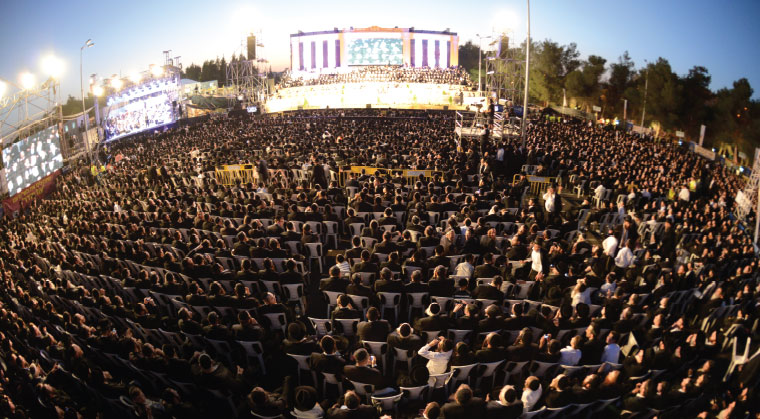Captive Audience

Everyone was looking at him now. The way the menahel was saying it in that special tone of voice he used when he was trying to sound cheerful but really wasn’t, made Yoni suspect he was saying it for the second time. Maybe even the third.

Photo: Shutterstock
Yoni was watching his parents sitting on the wooden chairs facing the menahel. The chairs were too small for them he thought. Even though Tatty was nodding politely he was crossing his feet right on top of left then left on top of right.
Yoni noticed a pattern how every seven seconds or so his father switched feet again. He looked down at his Casio watch eager to check if he was right when he heard the menahel say “I think the best person to answer this question is Yoni himself.”
Everyone was looking at him now. The way the menahel was saying it in that special tone of voice he used when he was trying to sound cheerful but really wasn’t, made Yoni suspect he was saying it for the second time. Maybe even the third.
“Okay” Yoni said cautiously “I can answer. But what’s the question?” He laughed hoping it would take the edge off.
Tatty looked at Mommy and shrugged hopelessly and the menahel looked triumphant as if he’d guessed right about something. Mommy stroked his cheek and said “Yoni the menahel asked if maybe you want to tell us what makes you act up in class he says he can’t speak for you.”
What a weird question Yoni thought. Now his knee felt like it was on fire. “I guess that other stuff seems interesting stuff besides the rebbi you know?”
“No Yoni I don’t know.” Tatty frowned. “I really don’t. Yoni do you think I always find insurance interesting? You think it’s interesting calculating rates and negotiating with customers and fighting with the companies?” Mommy gave him a sharp look and he softened his tone. “But I do it anyhow. It’s my job. You need to bear down and do your job.” The menahel stepped back in. “Yoni what your father is saying is that a person has to stay focused on what he’s doing and then it becomes interesting.” He held Yoni’s gaze as if the words were a USB card he was inserting in Yoni’s brain.
“Okay.” Yoni smiled, eager for everyone else to smile too and get back to normal.
“So what can we do to make things run a bit more smoothly?” The menahel leaned forward again looking at Yoni who noticed that the rubber nosepiece on the menahel’s glasses was missing. That must hurt, he thought.
He wanted to get back to class. Rebbi had brought in a wallet filled with old coins and he said that right after recess they would let it fall and measure a “kav be’arba amos.” Yoni didn’t want to miss it.
“I’ll try harder,” he said because it sounded like a safe answer.
The menahel broke in to a genuine smile looking at Yoni’s parents as they were all partners in the winning lottery ticket. “Exactly tzaddik! It’s just a question of effort of concentration and ratzon. You can do it if you try especially ” he added generously “with your kishronos your brains. Okay you can go back now I’ll keep your parents another minute or two.”
Yoni smiled self-consciously as Mommy kissed him. Tatty only rumpled his hair. Anxious about missing the old coins thing Yoni swung the classroom door open a bit too eagerly and rebbi gave him a dirty look. “Welcome back Yoni maybe a take a moment to collect yourself. Then let’s try this again. Step aside and knock on the door like a mensch.”
“Sorry.” It looked like they’d already started, Yoni noticed. His heart sank. “Sorry,” he said again.
Oops! We could not locate your form.












